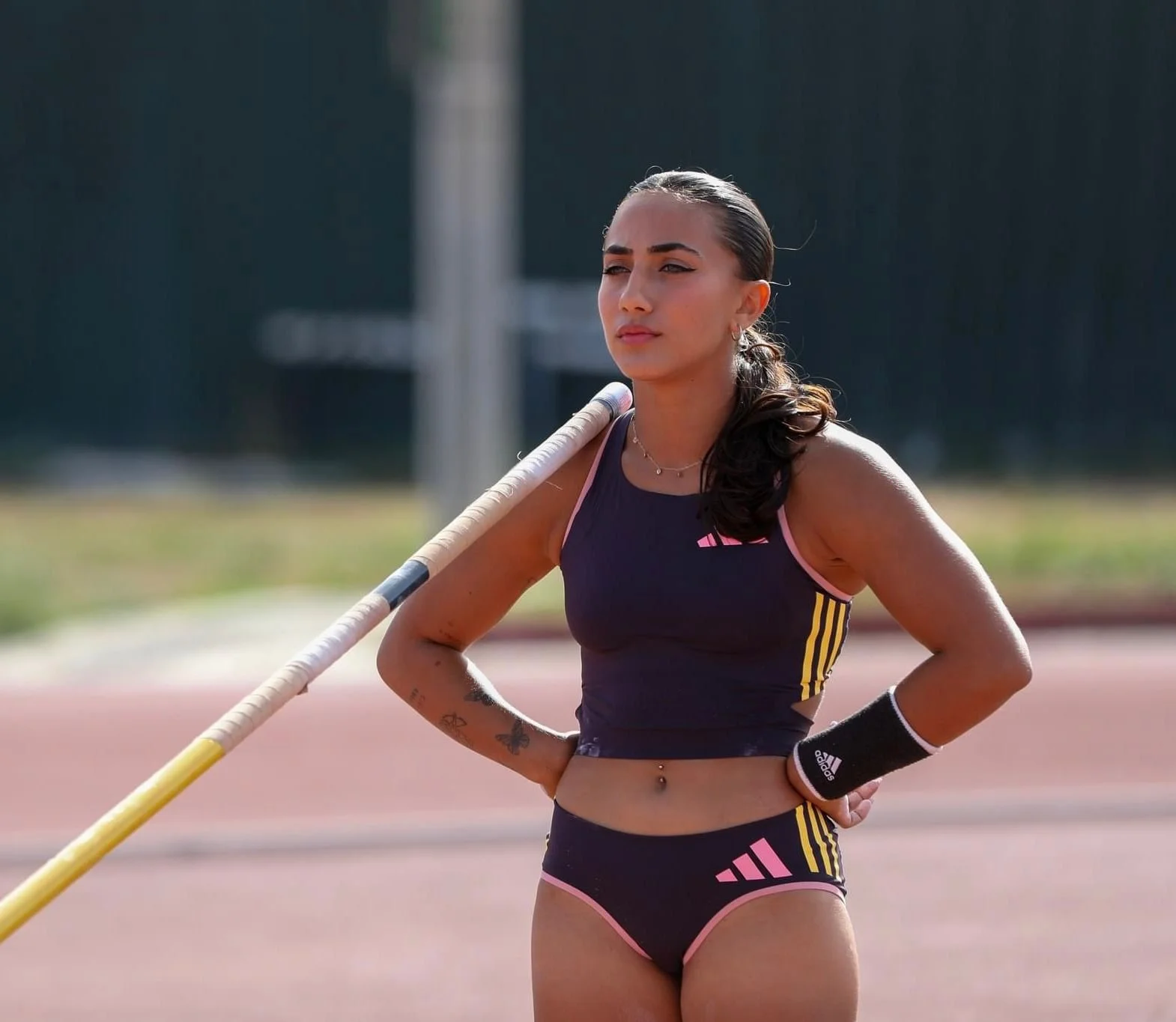Women in Sport - A conversation with Sana Grillo
We sat down with Sana Grillo, Maltese Pole Vault Athlete and Sport Psychology Practitioner, for an open and powerful conversation about what it really means to be a women in sport.
Pole vaulting is a highly technical and mentally demanding sport that requires athletes to coordinate sprinting speed, precise pole placement, and complex body mechanics to clear a high bar. Beyond physical ability, it challenges mental resilience, focus, and confidence, as vaulters must repeatedly commit to a high-risk, high-skill movement under pressure.
Sana, you began your competitive athletics journey in 2021, a relatively recent start. What drew you to pole vaulting and how has your journey unfolded so far?
I was drawn to pole vaulting because of how challenging and technical it is, and because it reminded me of gymnastics. It’s one of the most technical events in athletics, and coming from gymnastics I’ve always loved the technical aspect of it. Since then, the journey has been intense but rewarding. I’ve gone from knowing nothing about this sport to it becoming a main part of my life.
“When I first tried it in 2021, I immediately fell in love with it, the feeling of flying and the technical challenge of it.”
Pole vaulting is a highly technical and mentally demanding event. What are some of the unique psychological or physical challenges you’ve encountered in this sport?
One of the biggest challenges is managing fear and doubt, especially when you’re going higher, or when a technical change feels unfamiliar. Your mind can quickly shift into self-protective mode, which is helpful for safety but can get in the way of performance. Physically, there’s also the reality of injury risk and the demand on your body to be fast, strong, and technically precise all at once. Mentally, it’s the challenge of staying confident and focused despite setbacks, whether it’s a missed height, a bad training session, or a plateau. It really tests your resilience.
“One of the biggest challenges is managing fear and doubt […]. Your mind can quickly shift into self-protective mode, which is helpful for safety but can get in the way of performance.”
Wearing both hats as an athlete and a sport psychology practitioner, what are some of the hidden psychological struggles that female athletes often face but rarely speak about?
There’s a lot that goes unspoken. Many female athletes silently battle with body image issues, pressure to be a certain way, and disordered eating, especially in sports where aesthetics or weight seem to “matter.” There’s also the fear of being perceived as “too emotional” or “not tough enough” if we speak openly about our mental health. And then there’s the internal pressure to constantly prove ourselves in male-dominated environments. As someone who lives in both worlds, I’ve come to realise how important it is to normalise these conversations and create spaces where female athletes feel safe expressing vulnerability without judgment.
“There’s a lot that goes unspoken.”
How do you personally define ‘strength’ when it comes to balancing the physical demands of high-performance sport with mental wellbeing?
For me, strength isn’t just about pushing through, it’s about knowing when to pause, reset, and take care of your mental space. It’s being disciplined, but also compassionate with yourself. True strength is shown in your ability to keep showing up, especially when things aren’t going your way. It’s about recognising that mental wellbeing isn’t separate from performance, it’s foundational to it. So, I prioritise both: I train hard, but I also reflect, and stay connected to the “why” behind what I do, and also when I need to take a step back.
“For me, strength isn’t just about pushing through, it’s about knowing when to pause, reset, and take care of your mental space.”
As a prominent figure in Maltese athletics, how do you see your role in inspiring and guiding the next generation of athletes both on and off the field?
I see it as a responsibility and a privilege. I want young athletes to see that it’s okay to start later in life, to be multidimensional, to be both an athlete and a student, a competitor and a supporter of others. On the field, I try to lead by example through work ethic and positivity. Off the field, I use my voice to talk about the mental side of sport, to help break stigma and show that success doesn’t come without setbacks. I hope that by being open about my own journey, I can encourage others to chase their potential, with both courage and kindness.
Sana Grillo will be one of the panelists in our upcoming conference, Women in Sport: Strength, Stigma & the Silent Struggles, taking place on 7 August at MOVE Clinic. For more information and to purchase your ticket, visit: Ticket
Follow Sana’s Journey on Instagram
Follow us on Instagram

